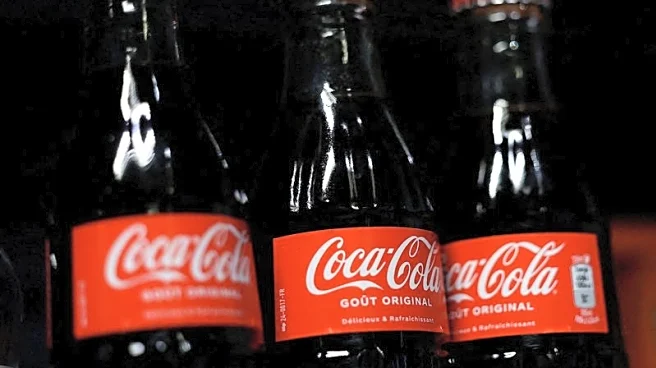What's Happening?
Lego has announced a significant change in its shipping policy, ceasing the shipment of individual pieces to the United States and Canada. This decision is a direct consequence of tariffs imposed by President Trump, which have increased global shipping costs. The change affects Lego's Pick a Brick program, making over 2,500 pieces unavailable for shipment. Previously, consumers could easily replace lost or missing bricks through this program. The tariffs have rendered the program unfeasible, particularly for pieces priced under a dollar, which are typically shipped from Denmark. While bestseller collections remain available, the change complicates the acquisition of specific pieces needed for complex builds.
Why It's Important?
The halt in shipping individual Lego pieces highlights the broader impact of trade policies on consumer goods. The toy industry, among others, is experiencing financial strain due to increased shipping costs. This development affects consumers who rely on the availability of specific Lego pieces for creative projects, potentially reducing consumer satisfaction and impacting sales. The decision underscores the ripple effects of trade tariffs on international businesses and their operations in North America, illustrating how policy changes can disrupt established consumer services.
What's Next?
Lego's Pick a Brick page indicates that the suspension of standard piece shipments is temporary, suggesting potential future adjustments. Stakeholders, including consumers and retailers, may advocate for policy changes or seek alternative solutions to mitigate the impact. The toy industry might explore new strategies to adapt to the evolving trade environment, possibly influencing future business models and consumer offerings.
Beyond the Headlines
This situation raises questions about the long-term implications of trade tariffs on global commerce and consumer access to international products. It highlights the need for businesses to navigate complex trade regulations and adapt to changing economic landscapes. The cultural significance of Lego as a creative tool may drive discussions on preserving consumer access despite regulatory challenges.










